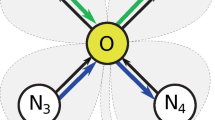Abstract
Privacy-seeking cryptocurrency users rely on anonymization techniques like CoinJoin and ring transactions. By using such technologies benign users potentially provide anonymity to bad actors. We propose overlay protocols to resolve the tension between anonymity and accountability in a peer-to-peer manner. Cryptocurrencies can adopt this approach to enable prosecution of publicly recognized crimes. We illustrate how the protocols could apply to Monero rings and CoinJoin transactions in Bitcoin.
Access this chapter
Tax calculation will be finalised at checkout
Purchases are for personal use only
Similar content being viewed by others
Notes
- 1.
Conversely, if the LEA has some information (e. g. due to non-uniformly valued inputs and outputs), it can partition the transaction and proceed as described.
- 2.
A CoinJoin with \(m=100\) made headlines in June 2019: https://www.coindesk.com/bitcoin-users-perform-what-might-be-the-largest-coinjoin-ever.
- 3.
We depart from Monero’s terminology, which calls an entire ring “input.”.
References
Abramova, S., Schöttle, P., Böhme, R.: Mixing coins of different quality: a game-theoretic approach. In: Brenner, M., et al. (eds.) FC 2017. LNCS, vol. 10323, pp. 280–297. Springer, Cham (2017). https://doi.org/10.1007/978-3-319-70278-0_18
Anderson, R., Shumailov, I., Ahmed, M.: Making bitcoin legal. In: Matyáš, V., Švenda, P., Stajano, F., Christianson, B., Anderson, J. (eds.) Security Protocols 2018. LNCS, vol. 11286, pp. 243–253. Springer, Cham (2018). https://doi.org/10.1007/978-3-030-03251-7_29
Arce, D.G., Böhme, R.: Pricing anonymity. In: Meiklejohn, S., Sako, K. (eds.) FC 2018. LNCS, vol. 10957, pp. 349–368. Springer, Heidelberg (2018). https://doi.org/10.1007/978-3-662-58387-6_19
Backes, M., Clark, J., Kate, A., Simeonovski, M., Druschel, P.: BackRef: accountability in anonymous communication networks. In: Boureanu, I., Owesarski, P., Vaudenay, S. (eds.) ACNS 2014. LNCS, vol. 8479, pp. 380–400. Springer, Cham (2014). https://doi.org/10.1007/978-3-319-07536-5_23
Claessens, J., Díaz, C., Goemans, C., Dumortier, J., Preneel, B., Vandewalle, J.: Revocable anonymous access to the Internet? Internet Res. 13(4), 242–258 (2003)
Dingledine, R., Mathewson, N.: Anonymity loves company: usability and the network effect. In: Workshop on the Economics of Information Security (2006)
Fujisaki, E., Suzuki, K.: Traceable ring signature. In: Okamoto, T., Wang, X. (eds.) PKC 2007. LNCS, vol. 4450, pp. 181–200. Springer, Heidelberg (2007). https://doi.org/10.1007/978-3-540-71677-8_13
Goldfeder, S., Kalodner, H., Reisman, D., Narayanan, A.: When the cookie meets the blockchain: privacy risks of web payments via cryptocurrencies. Privacy Enhancing Technol. 4, 179–199 (2018)
Heilman, E., AlShenibr, L., Baldimtsi, F., Scafuro, A., Goldberg, S.: TumbleBit: an untrusted bitcoin-compatible anonymous payment hub. In: Network and Distributed System Security Symposium. Internet Society (2017)
Jarecki, S., Shmatikov, V.: Probabilistic escrow of financial transactions with cumulative threshold disclosure. In: Patrick, A.S., Yung, M. (eds.) FC 2005. LNCS, vol. 3570, pp. 172–187. Springer, Heidelberg (2005). https://doi.org/10.1007/11507840_17
Köpsell, S., Wendolsky, R., Federrath, H.: Revocable anonymity. In: Müller, G. (ed.) ETRICS 2006. LNCS, vol. 3995, pp. 206–220. Springer, Heidelberg (2006). https://doi.org/10.1007/11766155_15
Maxwell, G.: CoinJoin: Bitcoin privacy for the real world. Forum post (2013)
Möser, M., Böhme, R.: Join me on a market for anonymity. In: Workshop on the Economics of Information Security (2016)
Möser, M., Böhme, R., Breuker, D.: Towards risk scoring of bitcoin transactions. In: Böhme, R., Brenner, M., Moore, T., Smith, M. (eds.) FC 2014. LNCS, vol. 8438, pp. 16–32. Springer, Heidelberg (2014). https://doi.org/10.1007/978-3-662-44774-1_2
Möser, M., Narayanan, A.: Effective cryptocurrency regulation through blacklisting. Preprint (2019)
Pfitzmann, A., Köhntopp, M.: Anonymity, unobservability, and pseudonymity — a proposal for terminology. In: Federrath, H. (ed.) Designing Privacy Enhancing Technologies. LNCS, vol. 2009, pp. 1–9. Springer, Heidelberg (2001). https://doi.org/10.1007/3-540-44702-4_1
van Saberhagen, N.: CryptoNote v2.0. Whitepaper (2013)
Wijaya, D.A., Liu, J., Steinfeld, R., Liu, D.: Monero ring attack: recreating zero mixin transaction effect. In: Trust, Security And Privacy In Computing And Communications, pp. 1196–1201. IEEE (2018)
Wüst, K., Kostiainen, K., Čapkun, V., Čapkun, S.: PRCash: fast, private and regulated transactions for digital currencies. In: Goldberg, I., Moore, T. (eds.) FC 2019. LNCS, vol. 11598, pp. 158–178. Springer, Cham (2019). https://doi.org/10.1007/978-3-030-32101-7_11
Yu, Z., Au, M.H., Yu, J., Yang, R., Xu, Q., Lau, W.F.: New empirical traceability analysis of CryptoNote-style blockchains. In: Goldberg, I., Moore, T. (eds.) FC 2019. LNCS, vol. 11598, pp. 133–149. Springer, Cham (2019). https://doi.org/10.1007/978-3-030-32101-7_9
Acknowledgements
We thank our colleagues Michael Fröwis, Malte Möser, Tim Ruffing, and a number of anonymous reviewers for helpful discussions of earlier versions of this work. Rainer Böhme’s and Patrik Keller’s work on this topic is supported by the Austrian FFG’s KIRAS programme under project VIRTCRIME.
Author information
Authors and Affiliations
Corresponding author
Editor information
Editors and Affiliations
Rights and permissions
Copyright information
© 2021 International Financial Cryptography Association
About this paper
Cite this paper
Keller, P., Florian, M., Böhme, R. (2021). Collaborative Deanonymization. In: Bernhard, M., et al. Financial Cryptography and Data Security. FC 2021 International Workshops. FC 2021. Lecture Notes in Computer Science(), vol 12676. Springer, Berlin, Heidelberg. https://doi.org/10.1007/978-3-662-63958-0_3
Download citation
DOI: https://doi.org/10.1007/978-3-662-63958-0_3
Published:
Publisher Name: Springer, Berlin, Heidelberg
Print ISBN: 978-3-662-63957-3
Online ISBN: 978-3-662-63958-0
eBook Packages: Computer ScienceComputer Science (R0)




